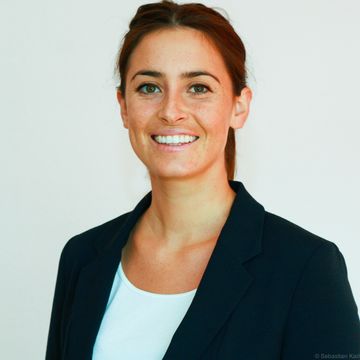Theory in Information Systems Research
IS 903 für Doktoranden (Center for Doctoral Studies in Business)
Allgemeines
| Verantwortlicher Dozent | Dr. Monica Fallon |
|---|---|
| Veranstaltungsart | Lecture |
| Leistungspunkte | 8 ECTS |
| Sprache | Englisch |
| Prüfungsform und -umfang | Theory Presentation (33%), Class Discussion (33%), Discussion Leader (33%) |
| Infos für Studierende | Registrierung: Registration available on Portal2 |

Infos zur Veranstaltung
Kurzbeschreibung
Knowledge creation and dissemination are key objectives of scientific endeavors. However, what constitutes knowledge is a highly contested issue. Certainly, at the core of social science disciplines, knowledge is inseparable from theory. Indeed, to seek theory-guided explanations of real-world phenomenon is what separates scholars from consultants, who seek to change reality without explaining it, and from journalists, who report reality but do not explain it. The pursuit of theory drives us to understand reality—to discover truth—before making recommendations on how to change reality. To pursue theory is to pursue knowledge; to pursue knowledge is to advance humanity. Consequently, many scholars emphasize the centrality of theories for any scientific endeavor—a thought widely reflected in many disciplines from the natural to the social sciences. While attention to theoretical work has been at the heart of the Information Systems (IS) discipline for a long time, the focus on theoretical debates and genuine conceptual contributions has been picking up recently. This is reflected by a number of journal sections and conference tracks dedicated to advancing theory and theorizing in IS research, and just as much as in many authors’ experiences during the reviews of their work.
This course invites participants to join the ongoing discourse on theories and theorizing in IS research. It is designed to help participants build and extend their understanding of the nature and role of theory in IS research. Through discussions and analyses of current theoretical developments in the IS discipline and some of its main reference disciplines, participants will engage with theory and advance their skills of crafting their own theoretical contributions and evaluating those of others.
Course Objectives
- To understand the importance and usefulness of theory in research
- To learn theorizing strategies
- To learn to evaluate theoretical contribution in research
- To develop basic theorizing skills
- To identify a theory that could be applicable to the participants’ own research programs
Vorlesung
Termine
Datum Uhrzeit Thema Raum 12.02.2025 13:00 – 14:15 Uhr Kick-Off L 15, 1–6, Raum 714 26.02.2025 13:00 – 16:30 Uhr Theory and Theory Building
Research DesignL 15, 1–6, Raum 714 12.03.2025 13:00 – 16:30 Uhr Conceptual Papers and Literature Reviews L 15, 1–6, Raum 714 Case Study L 15, 1–6, Raum 714 26.03.2025 13:00 – 16:30 Uhr Survey
Design ScienceL 15, 1–6, Raum 714 09.04.2025 13:00 – 16:30 Uhr Experiments
Future of Theory Building in ISL 15, 1–6, Raum 714 TBD TBD Writing Reviews, Assignments, and Conclusion Virtual TBD TBD Final Assignment Due